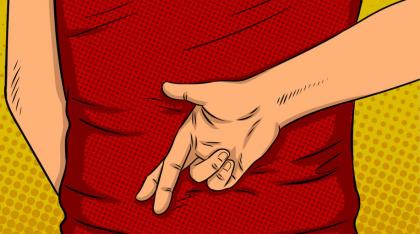Weird and Wacky Superstitions
There are a range of superstitions all over the world. Some are known worldwide, and others might be destination specific.
So, where do superstitions come from?
Many of the weird and wacky superstitions have equally weird and wacky origins. And because most of the superstitions deal with the supernatural – witches and spirits – their origin can usually be found in religion. Many people all over the world knock on wood to ward off bad luck. One theory suggests that pagan worshippers used to believe sprits lived in trees and would knock on the wood to summon the spirits to protect them.
However not all are based in religion, some might be based on coincidence and routinely bad luck. For instance, in Australia the number 87 in cricket is known as the Devil’s Number. The original story dates back to 1929 when a young fan Keith Miller (who would one day go on to be a well-known cricketer himself) was watching his idol Don Bradman get bowled out for 87, only 13 shy of a century. Many years later while playing a professional game of cricket, Keith saw his teammate Ian Johnson get bowled out on 87 too. He retold the story and so the legend spread. However, looking at it statistically there have been 14 Australian cricketers who have been dismissed on number 87, and so it’s nickname: the Devil’s Number.
In complete contrast from religious superstitions, some come with a very rational explanation. One example is that lighting three cigarettes with one match can bring bad luck. This was the case if you happen to be a soldier in a fox hole in the darkness. Lighting a match and keeping it lit for long enough to light three cigarettes could cause the enemy to find your position and open fire.
Why do people still believe in them?
Many people might forget the origin, deeming even those that made sense at the time to seem odd. However, having a knowledge or even belief in the superstitions is linked to culture more than an actual belief in them. We might have grown up with grandparents who told us to avoid walking under ladders with no more of an explanation than its bad luck! Or we might start to see a pattern ourselves – winning a sporting game by wearing the same pair of socks, and just like that they've become your lucky charm!
With Kaplan International now offering three additional languages, German, French and Spanish to students all over the world, we’ll be celebrating some of the weirder superstitions from those regions.
Take a look at our video and see if you can spot the superstition:
French Superstitions
Never put a baguette upside down on the table, it will bring bad luck!
How fitting that the first French superstitions involves the beloved baguette. Apparently, this superstition dates back to the executioner days where the baker would put the bread upside down to be left for the hungry executioner. And no one would dare eat a hungry executioner’s bread. However, if you do happen to place the baguette upside down, you will need to make a cross with a knife on the flat side of the bread to ensure you dispel the bad luck.

Touch a sailor’s pompom for good luck
A traditional sailor’s outfit is made up of a white beret topped with a red pompom. Touching this red pompom, or giving it a gently stroke, can bring about great fortune. So, if you’re in need of a little luck, you know what to do.
Want to learn a new language? We now offer French courses in France and Switzerland
German Superstitions
Do not toast with water, unless you want your friends to die
In German culture you need to know your toasting etiquette, because making a mishap could mean wishing death upon your friends. Toasting over a glass of water is a serious no-no, so much so that it’s better to toast with an empty glass. It literally means to wish death over those you are toasting.
Although this one doesn’t originate in German history at all, its origin can be found in Greek mythology where the dead would always drink from the river, as a result Greeks would toast the dead with a glass of water to symbolise their voyage.

Never wish birthday luck – until the day
This one isn't unique to Germany but exists in many places around the world. Wishing someone happy birthday or celebrating your big day before it's arrived isn’t exactly lucky. It is unwise to assume events will take place before they actually do. Reinfeiern is the idea that you can celebrate your birthday the night before, only giving wishes at midnight and beyond, to avoid back luck. It literally translates as “party into”, so you're partying into your birthday.
Want to learn a new language? We now offer German courses in Freiberg and Berlin
Spanish Superstitions
Tuesday the 13th is the unluckiest day
Forget about Friday the 13th, in Spanish culture it’s Tuesday the 13th that you should be wary of. You won’t find many locals who choose it as a day to get married.
The fuss over Tuesday 13th comes from both Greek and Roman culture. In Greek mythology Tuesday is dominated by Ares, the Greek god of war where Constantinople had fallen to enemies twice on a Tuesday, added to that weight that bad things come in threes. In Roman culture, Tuesday is believed to be ruled by Mars, the Roman god of war, whose name is Martes – which also happens to be Tuesday in Spanish.

Careful whose feet you sweep
In Spain, if a broom touches the foot of a single person then you've doomed them to a lifetime alone. So, if you are sweeping – be wary not to touch anyone’s foot – who never know who they may be! And if you’re a single person then steer clear of people sweeping and avoid it all together if you want a chance at finding your soulmate.
Want to learn a new language? We now offer Spanish courses in Barcelona, Madrid, Malaga and Valencia
So, before you decide to travel or move abroad, why not brush up on cultural superstitions and some basic vocabulary words so you'll feel more at home when you arrive.






